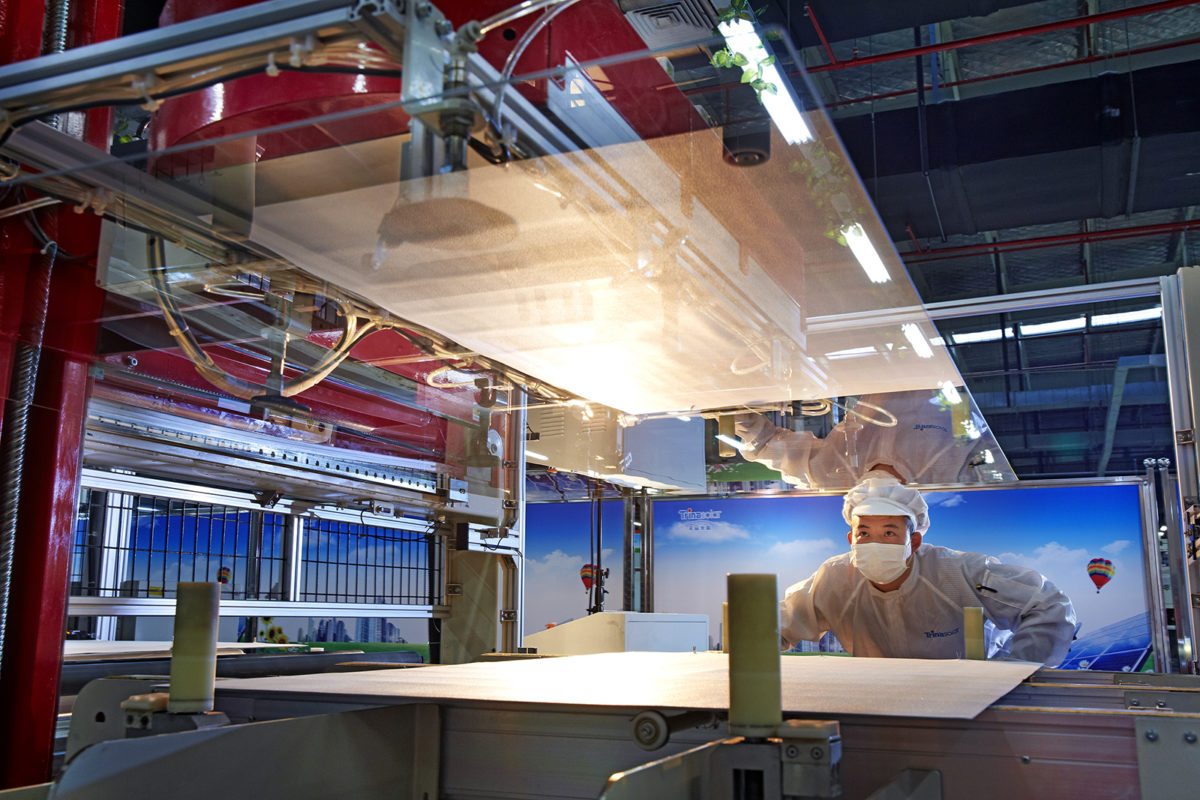The leading Chinese solar PV module maker and project developer confirmed to pv magazine that CEO and founder, Mr Jifan Gao met with Pakistan’s Prime Minister, Shahid Khaqan Abbasi at the World Economic Forum (WEF) in Davos, Switzerland, held this January 23 to 26.
At the meeting, Abbasi invited Trina to set up manufacturing facilities in Pakistan, and said the government would provide “full support and tax incentives”.
According to Radio Pakistan, Gao thanked the Prime Minister and said Trina would “seriously consider establishment of local manufacturing solar panels’ plant.” The Trina spokesperson told pv magazine there were no other details available at the moment.
Reportedly, the government is aiming to boost both employment in the country and establish an “affordable” energy alternative.
Shelved plans
Trina Solar, which went private last March, announced earlier this week it had shipped between 9 and 9.2 GW of PV modules in 2017, thus taking cumulative shipments to over 32 GW. It has grown to become the world’s biggest manufacturer of solar cells and modules, over its 20 year history.
In 2015, the company signed a memorandum of understanding with the Indian state of Andhra Pradesh, under which it was to build a 2 GW PV manufacturing facility, with an estimated investment of INR 28 billion (US$435 million). However, the project was shelved after conducting a feasibility study.
Despite this, it is still one of the major players in Indian solar, accounting for 25.7% of the module supply market, according to Bridge to India.
Updated
At the start of January, Pakistan updated its net metering scheme, in order to simplify the process and attract more people; and unveiled a clean energy investment scheme.
According to its Q4 Global PV Market Outlook, Bloomberg New Energy Finance (BNEF) estimates Pakistan will see PV installations increase 46% in 2017, up from 700 MW in 2016, to 1.020 GW.
What’s more, says BNEF, the country imported $267 million of solar products from China, according to figures up to August, compared to $335 million in the whole of 2016.
This content is protected by copyright and may not be reused. If you want to cooperate with us and would like to reuse some of our content, please contact: editors@pv-magazine.com.




By submitting this form you agree to pv magazine using your data for the purposes of publishing your comment.
Your personal data will only be disclosed or otherwise transmitted to third parties for the purposes of spam filtering or if this is necessary for technical maintenance of the website. Any other transfer to third parties will not take place unless this is justified on the basis of applicable data protection regulations or if pv magazine is legally obliged to do so.
You may revoke this consent at any time with effect for the future, in which case your personal data will be deleted immediately. Otherwise, your data will be deleted if pv magazine has processed your request or the purpose of data storage is fulfilled.
Further information on data privacy can be found in our Data Protection Policy.